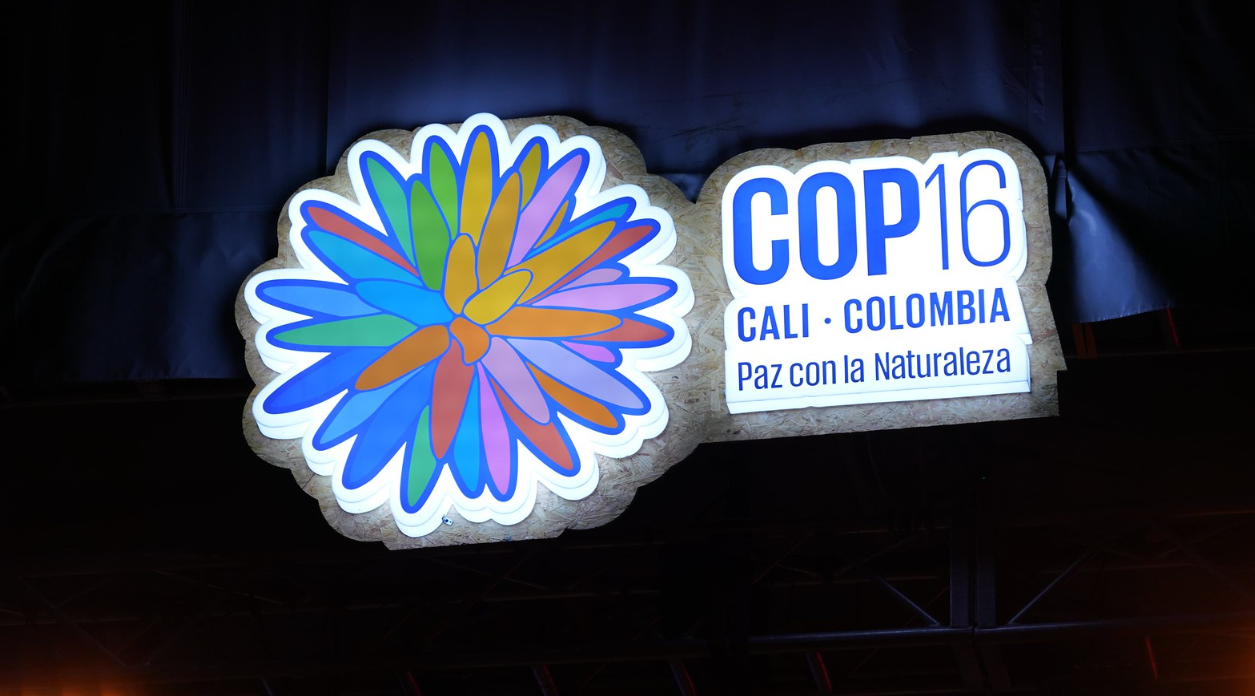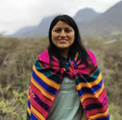Error message
Notice: Undefined property: Drupal\redirect\EventSubscriber\RouteNormalizerRequestSubscriber::$aliasManager in Drupal\redirect\EventSubscriber\RouteNormalizerRequestSubscriber->onKernelRequestRedirect() (line 118 of modules/contrib/redirect/src/EventSubscriber/RouteNormalizerRequestSubscriber.php).
Winners of the 8th MIDORI Prize for Biodiversity 2024 Awarded in Ceremony at COP 16
The AEON Environmental Foundation and the Secretariat of the Convention on Biological Diversity (CBD) are pleased to announce the winners of the 2024 MIDORI Prize for Biodiversity:
- Ms. Vera Voronova, Executive Director, Association for the Conservation of Biodiversity of Kazakhstan; and
- Ms. Ysabel Agustina Calderón Carlos, Founder and CEO of Sumak Kawsay, an environmental enterprise, Peru.
The MIDORI Prize for Biodiversity is a prestigious biennial international prize organized by the AEON Environmental Foundation and the CBD Secretariat. It is awarded to biodiversity champions in several sectors of activities and from local to global levels.
The prize reflects the need for the whole-of-society approach that underpins the Kunming-Montreal Global Biodiversity Framework and its 23 targets for achievement by 2030. Today’s announcement brings to 19 the number of individuals from 17 countries who have received the prize. Each winner is awarded a commemorative gift and a plaque, and a monetary prize of USD 100,000 to support their work in safeguarding biodiversity.
The founder of the prize, Takuya Okada, Honorary Chairman of AEON Environmental Foundation and Honorary Chairman and Advisor, AEON Co., Ltd., said: “The conservation of biodiversity and the prevention of climate change are considered two of the most important environmental issues of the present day. The Foundation hopes that this prize will contribute to these global environmental issues and to achieving the global goals set forth in the Kunming-Montreal Global Biodiversity Framework in December 2022.”
Astrid Schomaker, CBD Executive Secretary remarked: “It is crucial to take tangible and innovative actions that demonstrate how the implementation of the Kunming-Montreal Global Biodiversity Framework through a whole-of-society approach can become a reality. This year’s winners have developed initiatives that can benefit people and nature, at the local and international levels. Congratulations to Vera Voronova and Ysabel Agustina Calderón Carlos whose groundbreaking solutions epitomize the commitment we need to fulfill the vision of humanity living in harmony with nature”.
More information:
The 2024 MIDORI Prize Winners
Executive Director, Association for the Conservation of Biodiversity of Kazakhstan
Vera Voronova is the exceptional leader of ACBK, Kazakhstan’s national civil society organization dedicated to nature conservation and restoration. She collaborates with multiple governments and conservation organizations to restore species, establish protected areas, and improve conservation legislation not only in Kazakhstan but throughout Central Asia. Particular focus is placed on the recovery of endangered mammal populations in the steppe regions, restoration of migration corridors, and protection of the Central Asian Flyway. Her initiatives have directly improved the livelihoods of rural communities, educated the next generation on environmental and conservation issues, and contributed to the conservation of migratory animals that cross national borders. Her approach serves as an exemplary model of engagement at all levels, employing whole-of-government and whole-of-society strategies. The project is expected to have further international impacts.
Founder and CEO of Sumak Kawsay, an environmental enterprise
Ysabel Agustina Calderón Carlos, founder and CEO of Sumak Kawsay, effectively leads conservation efforts aimed at halting and reversing pollinator decline while fostering socio-economic development in local communities, especially Indigenous women and youth. Her “Bee Honey Route” project promotes agrotourism, using honey production from native stingless bees and tourism revenue to fund ecosystem restoration, native plant reforestation, research, and conservation. The work yields tangible benefits for biodiversity and ecosystems, supports sustainable livelihoods, and advances gender equality. The environmental enterprise has created an innovative business model that benefits both biodiversity and civil society, supporting economic development and Indigenous rights. Recognized internationally, her initiatives serve as a model for holistic societal approaches.

